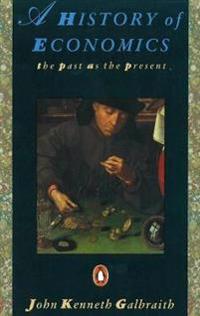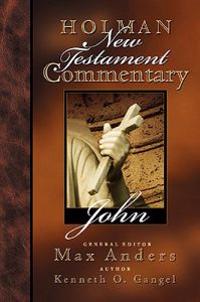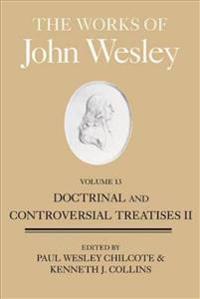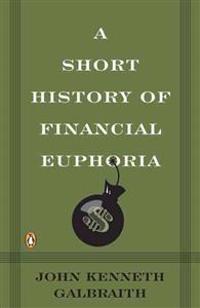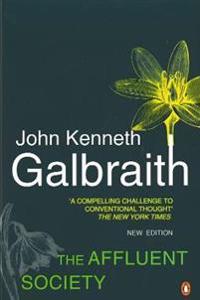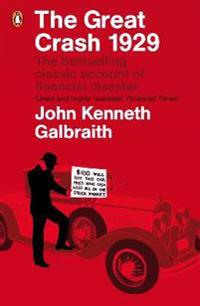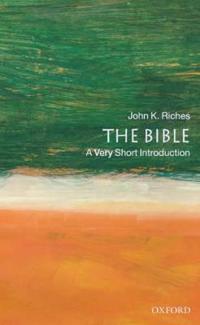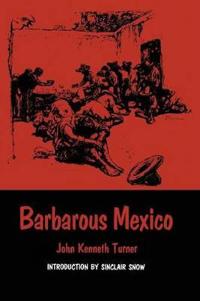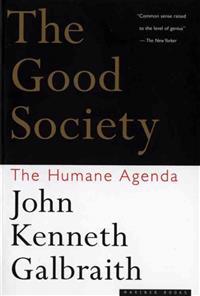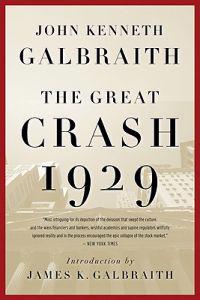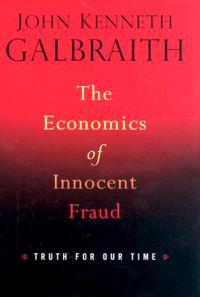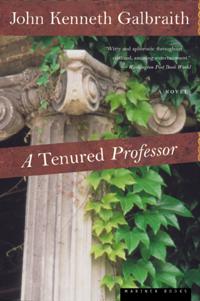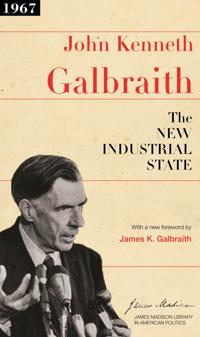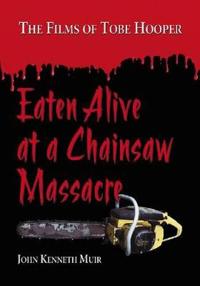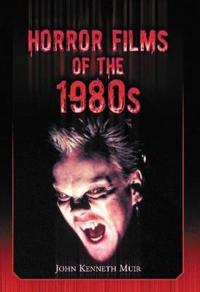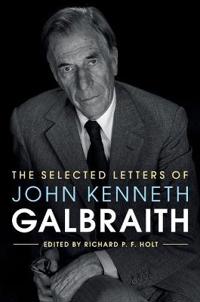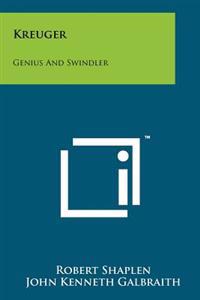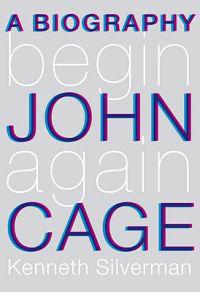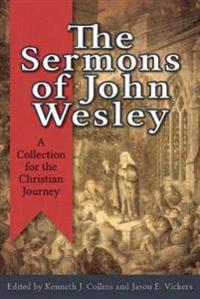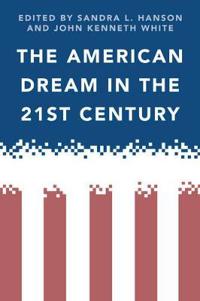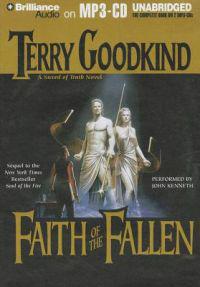A History of Economics (Storpocket)
avJohn Kenneth Galbraith, John Kenneth Galbraith
ISBN: 9780140153958 - UTGIVEN: 199108A book explaining the history of economics; including the powerful and vested interests which moulded the theories to their financial advantage; as a means of understanding modern economics.[...]
Holman New Testament Commentary John (Inbunden)
avKenneth O. Gangel, Max E. (EDT) Anders, Kenneth O. Gangel
ISBN: 9780805402049 - UTGIVEN: 2000-12To complete the Holman New Testament Commentary series, Holman presents Dr. Kenneth O. Gangel's insightful examination of the Gospel of John. Designed to give Bible scholars and teachersa thorough yet easy-to-follow resource, Gangel's commentary lifts up the historical significance and timeless trut[...]
The Works of John Wesley, Volume 13: Doctrinal and Controversial Treatises II (Inbunden)
avJohn Wesley, Paul Wesley Chilcote, Kenneth J. Collins
ISBN: 9781426766978 - UTGIVEN: 2013-09The second of three volumes devoted to Wesley s theological writings contains two major sets of material. The first set (edited by Paul Chilcote) contains writings throughout Wesley s ministry devoted to defense of the doctrine of Christian perfection, including "A Plain Account of Christian Perfect[...]
A Short History of Financial Euphoria (Häftad)
avJohn Kenneth Galbraith
ISBN: 9780140238563 - UTGIVEN: 199407The world-renowned economist offers "dourly irreverent analyses of financial debacle from the tulip craze of the seventeenth century to the recent plague of junk bonds."--"The Atlantic."[...]
The Affluent Society (Storpocket)
avJohn Kenneth Galbraith
ISBN: 9780140285192 - UTGIVEN: 199908John Kenneth Galbraith's international bestseller "The Affluent Society" is a witty, graceful and devastating attack on some of our most cherished economic myths. As relevant today as when it was first published over forty years ago, this newly updated edition of Galbraith's classic text on the 'eco[...]
The Great Crash 1929 (Häftad)
avJohn Kenneth Galbraith
ISBN: 9780141038254 - UTGIVEN: 200910John Kenneth Galbraith's now-classic account of the 1929 stock market collapse, "The Great Crash" remains the definitive book on the most disastrous cycle of boom and bust in modern times. "The Great Crash 1929" examines the causes, effects, aftermath and long-term consequences of America's infamous[...]
The Bible (Häftad)
avJohn Kenneth Riches
ISBN: 9780192853431 - UTGIVEN: 200002It is sometimes said that the Bible is one of the most unread books in the world, yet has been a major force in the development of Western culture and continues to exert an enormous influence over many people's lives. This Very Short Introduction looks at the importance accorded to the Bible by dif[...]
John Kenneth Galbraith (Pocket)
avRichard Parker
ISBN: 9780226646770 - UTGIVEN: 2006-08John Kenneth Galbraith (1908-2006) was one of America's most famous economists for good reason. From his acerbic analysis of America's "private wealth and public squalor" to his denunciation of the wars in Vietnam and Iraq, Galbraith consistently challenged "conventional wisdom" (a phrase he coined)[...]
Barbarous Mexico (Häftad)
avJohn Kenneth Turner
ISBN: 9780292707375 - UTGIVEN: 1969-01An early 20th century American journalist's articles on Mexico before the Revolution.
The Good Society (Pocket)
avJohn Kenneth Galbraith
ISBN: 9780395859988 - UTGIVEN: 1997-04The economist introduces his blueprint for an equitable society that shows compassion for the poor while providing economic opportunity to all its citizens[...]
New Party Politics (Pocket)
avJohn Kenneth White, Daniel M. Shea
ISBN: 9780534560232 - UTGIVEN: 2003-07-23The authors of this fresh text on American political parties employ an engaging writing style, a strong historical foundation, and a new analogy for understanding party systems in a compelling textbook. White and Shea trace the evolution of parties from the late 18th century through the Information [...]
The Great Crash 1929 (Häftad)
avJohn Kenneth Galbraith, , ,
ISBN: 9780547248165 - UTGIVEN: 200909The classic examination of the 1929 financial collapse, with an introduction by economist James K. Galbraith Of John Kenneth Galbraith's "The Great Crash 1929," the "Atlantic Monthly" said: "Economic writings are seldom notable for their entertainment value, but this book is. Galbraith's prose has g[...]
The Economics of Innocent Fraud (Inbunden)
avJohn Kenneth Galbraith
ISBN: 9780618013241 - UTGIVEN: 200404The primary aspect of the "fraud" of the American economy that Galbraith (emeritus, economics, Harvard U.) criticizes is the false pretense of shareholder control over corporations, when in fact all real power has shifted to corporate managers. Contradicting conventional wisdom, or "approved belief"[...]
A Tenured Professor (Häftad)
avJohn Kenneth Galbraith
ISBN: 9780618154555 - UTGIVEN: 2001-10John Kenneth Galbraith's third novel, A Tenured Professor, is at once an intriguing tale of morality and a comic delight. Montgomery Martin, a Harvard economics professor, creates a stock forecasting model, which makes it possible for him to uncover society's hidden agendas. Seeking proof that human[...]
John Wesley (Pocket)
avKenneth J. Collins
ISBN: 9780687027880 - UTGIVEN: 2003-04John Wesley: A Theological Journey has been nominated for a Wesleyan Theological Society Book Award. Abingdon Press would like to congratulate Kenneth Collins on this honor. John Wesley remains a seminal figure, not only for "the people called Methodist, " but also within the larger Protestant tradi[...]
The New Industrial State (Häftad)
avJohn Kenneth Galbraith
ISBN: 9780691131412 - UTGIVEN: 2007-04With searing wit and incisive commentary, John Kenneth Galbraith redefined America's perception of itself in "The New Industrial State, one of his landmark works. The United States is no longer a free-enterprise society, Galbraith argues, but a structured state controlled by the largest companies. A[...]
Eaten Alive at a Chainsaw Massacre (Häftad)
avJohn Kenneth Muir
ISBN: 9780786444618 - UTGIVEN: 2009-05The sound of chainsaws revving on 'haunted' Halloween trails has evoked untold screams since Tobe Hooper's 1974 "The Texas Chainsaw Massacre" hit the cinemas. Since that first take-no-prisoners horror movie, Hooper's reputation as a master of horror has been secured by his adaptations of Stephen Kin[...]
Horror Films of the 1980s (Pocket)
avJohn Kenneth Muir
ISBN: 9780786472987 - UTGIVEN: 2012-10John Kenneth Muir is back! His Horror Films of the 1970s was named an Outstanding Reference Book by the American Library Association, and likewise a Booklist Editors' Choice. This time, Muir surveys 300 films from the 1980s. From backwards psychos (Just Before Dawn) and yuppie-baiting giant rats (Of[...]
The Selected Letters of John Kenneth Galbraith
ISBN: 9781107019881 - UTGIVEN: 2017-04The Selected Letters of John Kenneth Galbraith invites readers to join in conversations with presidents and first ladies, diplomats and schoolchildren, the McCarthy 'loyalty board', foreign heads of state and fellow economists, and a host of other correspondents. In his long and cosmopolitan life, G[...]
Kreuger: Genius and Swindler (Häftad)
avRobert Shaplen, John Kenneth Galbraith
ISBN: 9781258120214 - UTGIVEN: 201110Begin Again: A Biography of John Cage (Inbunden)
avKenneth Silverman
ISBN: 9781400044375 - UTGIVEN: 2010-10The Sermons of John Wesley: A Collection for the Christian Journey (Häftad)
avKenneth J. Collins, Jason E. Vickers
ISBN: 9781426742316 - UTGIVEN: 201308A new and engaging collection of sermons that embraces the historic 44 sermons that John Wesley approved, plus the 8 more of the North American collection (52 sermons) and to this is added 8 sermons, carefully chosen, to fill things out for contemporary interests resulting in a grand total of sixty [...]
The American Dream in the 21st Century (Pocket)
avSandra L. (EDT) Hanson, John Kenneth (EDT) White, Sandra L. (EDT) Hanson
ISBN: 9781439903155 - UTGIVEN: 2011-06The American Dream has long been a dominant theme in U.S. culture, one with enduring significance, but these are difficult times for dreamers. The editors of and contributors to The American Dream in the 21st Century examine the American Dream historically, socially, and economically and consider it[...]
Ear, Nose and Throat Anatomical Chart (Övrigt)
avJohn Kenneth Galbraith
ISBN: 9781587791161 - UTGIVEN: 200101

